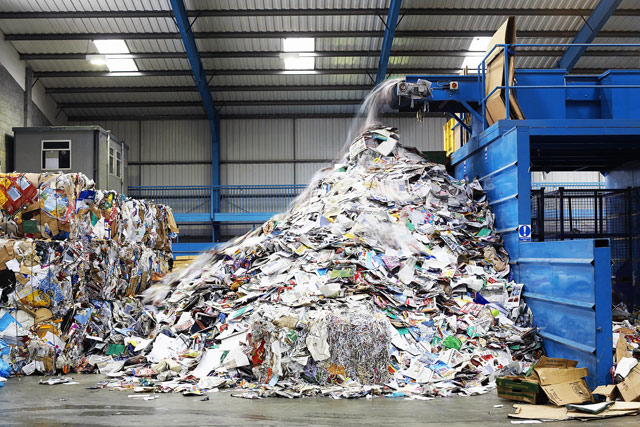[ad_1]

The demand for waste increases by 10-20 percent per annum
Plastics and paper industries use the most recycled materials.
Waste, if not re-used, will be a threat to the environment. Recycling waste is an important part of production activities of many countries.
To maintain the operation of the recycling industry, some countries, including China, have to import millions of tons of waste a year.
However, in July 2017, China informed WTO (the World Trade Organization) that it will stop importing 24 types of solid waste, including plastics and paper scrap.
|
Under the plastics industry development strategy by 2020 drafted by the Ministry of Industry and Trade, enhancing waste treatment and scrap recycling is one of the key solutions to develop the plastics industry. |
Waste exporting countries, including the US and European countries, don’t know what to do with the amount of 75,000 TEU they cannot ship to China each month.
South East Asian countries, including Vietnam, are expected to become a new destinations for waste materials.
Under the plastics industry development strategy by 2020 drafted by the Ministry of Industry and Trade, enhancing waste treatment and scrap recycling is one of the key solutions to develop the plastics industry.
The Vietnam Paper and Pulp Association (VPPA) has recommended that enterprises shift to collecting scrap paper and recycle scrap.
Importing waste is an important trade activity that serves domestic production, especially when the supply in Vietnam is short.
A report shows that scrap paper in Vietnam can satisfy 20 percent of material demand of the paper industry, while the remaining must be fed by imports.
Experts estimate that recycling one ton of scrap paper would save 24 plants, 40,000 liters of water, 4,000 kwh of electricity and cut 900 grams of CO2.
More importantly, recycling helps reduce deforestation and pollution.
However, the recycling industry in Vietnam still cannot develop, partially because of problems in the material collection.
The waste collection has been done on a small scale and in a scattered way.
Lee & Man, a paper manufacturer in Hau Giang province, plans to make paper with 90 percent of materials from scrap paper. It has good recycling capability and uses modern technology. However, as the scrap paper supply is not enough, it has to import scrap to maintain production.
The problem now is the lack of industry that supports recycling activities. Most of the machines, equipment and chemicals used in the industry are self-made or low quality imports.
In addition, Vietnam still doesn’t have a perfect legal framework to support recycling enterprises.
RELATED NEWS
VN must up the pace on waste sorting
Imported waste flooding Vietnam’s ports
Thien Nhien
[ad_2]
Source link
